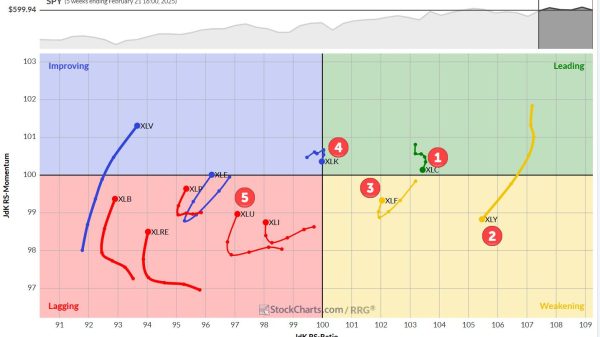Migrating BizTalk systems is a complex process that can significantly impact business operations if not carefully managed.
Companies rely heavily on BizTalk for various integrations and business workflows, making it essential to minimize disruptions during migration. Whether you’re looking to update, re-platform, or migrate entirely, ensuring business continuity is vital to maintain smooth operations and customer satisfaction. In this guide, we explore strategies and best practices to approach a BizTalk migration effectively while keeping business continuity at the forefront.
Why Business Continuity is Essential During a BizTalk Migration
Business continuity is the lifeline of any organization, especially during critical infrastructure changes like a BizTalk migration. BizTalk serves as a backbone for integrations, connecting various systems, applications, and data across an enterprise. Any disruption in these processes can lead to costly downtime, impact customer satisfaction, and even risk the loss of sensitive information. Therefore, maintaining continuity is essential to avoid interruptions that could ripple across all areas of the business.
Migrating from BizTalk can be challenging due to the complexity of the system’s integrations and the business-critical data it manages. To maintain operational stability, companies need to approach migration with a carefully crafted strategy that emphasizes business continuity at every stage. By ensuring seamless transitions and minimizing disruptions, organizations can not only safeguard ongoing processes but also position themselves for enhanced functionality and agility post-migration.
Understanding the Challenges of BizTalk Migration
Migrating BizTalk poses specific challenges due to its complex, interconnected architecture. Here are some common obstacles organizations face when planning a BizTalk migration:
data and system Integration complexity: BizTalk manages a multitude of integrations across various systems, from CRM and ERP to other mission-critical applications. This intricate web of connections means that even a minor error can disrupt workflows and compromise data integrity;
compatibility issues: migrating BizTalk may require reconfiguration or replacement of legacy systems that aren’t compatible with modern platforms. This process requires careful planning and testing to ensure each component functions smoothly post-migration;
risk of downtime: unplanned downtime during migration can halt critical operations, affecting everything from supply chains to customer service. Minimizing downtime requires a structured approach to migration that considers backup systems and failover plans;
Data Security concerns: BizTalk migrations can expose sensitive data to potential vulnerabilities. Without robust security measures in place, the migration could increase the risk of data breaches or compliance issues.
Each of these challenges underscores the importance of working with experts in BizTalk consulting, migration and integrations. These professionals bring the experience needed to navigate complex migrations and help minimize risk at every phase.
Steps to Ensure Business Continuity During BizTalk Migration
A smooth BizTalk migration requires a strategic approach that focuses on preempting potential disruptions and maintaining business continuity. Below are key steps that organizations should take to ensure a seamless transition.
Pre-Migration Planning and Assessment
The first step in a successful BizTalk migration is a thorough assessment of the existing infrastructure and business processes. This involves mapping out all BizTalk integrations, identifying critical data flows, and determining potential compatibility issues with the target environment. By understanding the full scope of the migration, companies can address risks proactively and establish priorities based on business impact.
A comprehensive assessment should also identify any legacy systems that may need modernization or replacement. Early detection of these elements enables better planning and reduces the chance of unexpected roadblocks.
Developing a Migration Roadmap with Risk Management Strategies
Creating a structured roadmap is essential for guiding the migration process. This roadmap should break down the project into manageable phases, each with clearly defined milestones, objectives, and timelines. Additionally, a roadmap should include a risk management strategy that addresses:
business-critical systems;
failover and recovery plans;
compliance and security requirements.
By setting up a roadmap with embedded risk management, organizations can navigate the migration process in a controlled manner, reducing the likelihood of disruptions and ensuring that business operations remain uninterrupted.
Selecting BizTalk Migration Tools and Technologies
Choosing the right migration tools and technologies is critical for a successful BizTalk migration. The tools selected should align with the specific needs of the business, from data handling requirements to integration complexity. Leveraging advanced migration tools can automate parts of the process, streamline integrations, and help maintain data accuracy.
Partnering with experts in BizTalk consulting, migration and integrations can help in selecting tools best suited for the business’s unique needs. Professional consultants bring insight into the latest technologies and can recommend solutions that optimize performance while minimizing disruption.
Role of Experts in BizTalk Consulting for a Smooth Migration
Navigating a BizTalk migration requires specialized knowledge to ensure continuity and optimize processes. Engaging experts in BizTalk consulting, migration, and integrations can significantly reduce the risk of downtime, data loss, and security issues, making the migration smoother and more cost-effective. These consultants bring the technical expertise and strategic insight needed to align the migration with business objectives while addressing the complexities unique to each environment.
Benefits of Engaging Experienced BizTalk Consultants
Experienced BizTalk consultants offer invaluable support throughout the migration process. Some key benefits include:
in-depth technical expertise: BizTalk consultants possess extensive knowledge of BizTalk architecture, integrations, and configurations, allowing them to foresee and address potential challenges before they impact operations;
customized migration strategies: consultants analyze the specific needs of the business to develop a tailored migration plan that accounts for the organization’s unique processes, systems, and goals;
reduced downtime and operational disruptions: with proper planning and execution, consultants can minimize downtime, keeping mission-critical systems online and ensuring business continuity;
compliance and security assurance: experienced consultants help implement best practices in data security and compliance, safeguarding sensitive information throughout the migration process.
By partnering with a skilled consulting team, companies can enhance their ability to manage complex BizTalk environments and transition smoothly to a new system.
How Consulting Services Help Customize Migration for Your Business Needs
Every organization has unique business processes and IT requirements, which is why a one-size-fits-all approach to BizTalk migration often falls short. BizTalk consulting services offer the flexibility to customize migration plans based on the specific needs of each business. Here’s how consulting services can add value:
business process alignment: consultants work closely with internal teams to ensure that the new system supports existing business processes or enables improvements where possible. This alignment helps avoid operational hiccups post-migration;
ongoing support and training: beyond the technical migration, BizTalk consultants often provide training for internal teams, ensuring they are comfortable with the new system and capable of managing future adjustments;
scalability and future-proofing: consultants help design the migrated infrastructure with scalability in mind, preparing the system to support future growth and adapt to changing business needs without significant overhauls.
Read more:
Maintaining business continuity during BizTalk migration – how to approach this?























